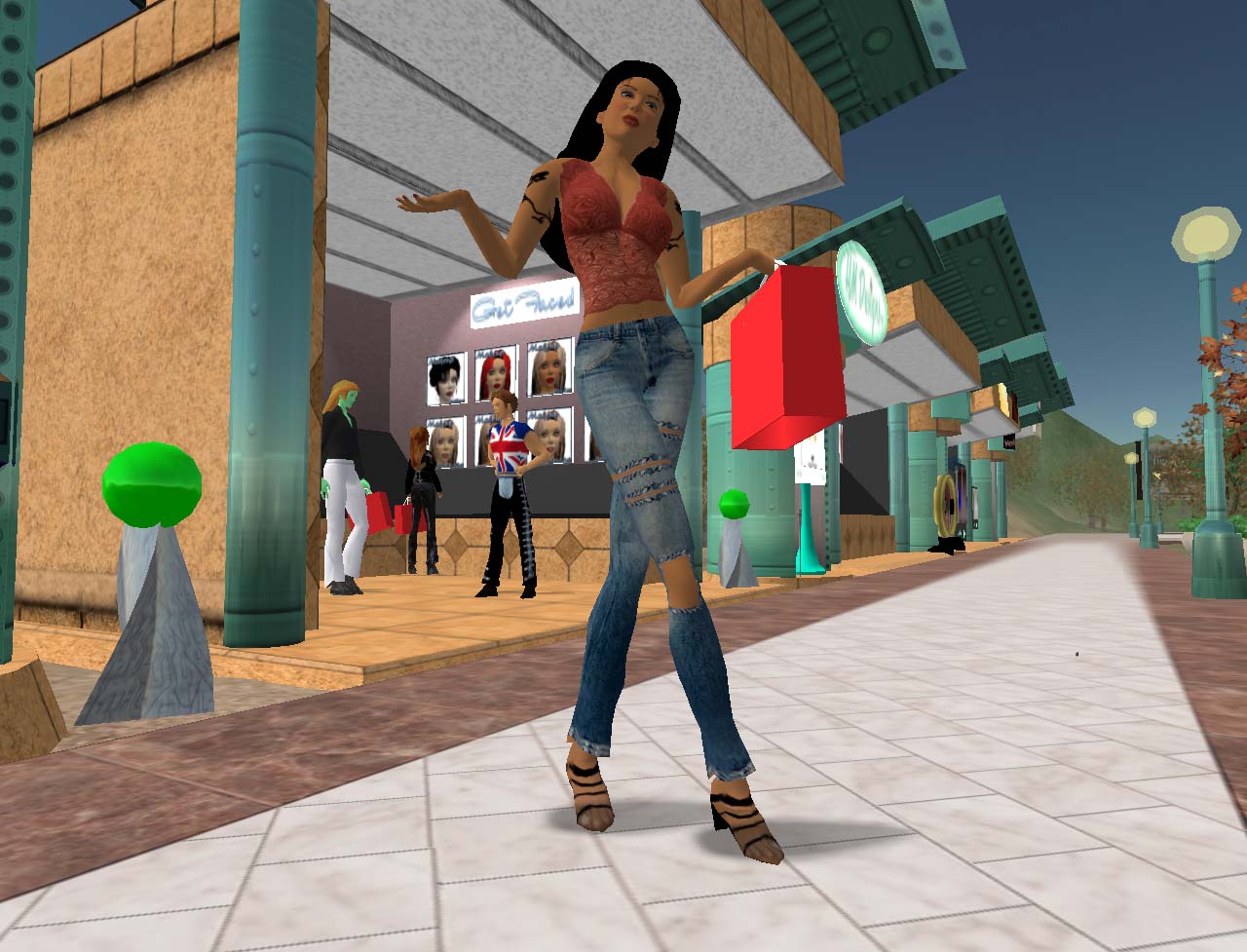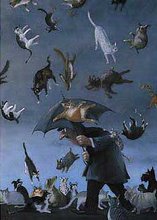A very real future for virtual worlds
What is Second Life?
Second Life is a 3-D virtual world entirely created by its Residents. Since opening to the public in 2003, it has grown explosively and today is inhabited by millions of Residents from around the globe. Its residents, represented by their character avatars, have been busy building homes, attending pop concerts and indulging some of their stranger fantasies. In this virtual world residents can do literally anything they please. Because Second Lifers can actually own the virtual goods they create, the world enjoys a booming virtual economy; residents can spend Linden dollars, which have a real world value.
Its residents, represented by their character avatars, have been busy building homes, attending pop concerts and indulging some of their stranger fantasies. In this virtual world residents can do literally anything they please. Because Second Lifers can actually own the virtual goods they create, the world enjoys a booming virtual economy; residents can spend Linden dollars, which have a real world value.
What it might take, he said, was software that would let people browse virtual worlds like they do webpages. Built in to that software would be an identity management system that re-drew yourself to match those different spaces.
"I think it is going to happen, that kind of portability of identity is important but I could not hazard a guess right now about how quickly it will happen," he said.
"But," he said, "with a sufficiently open platform then people will move into it quite rapidly."
It might, he speculated, one day outstrip the web as a means for people to communicate and work together.
"Because virtual worlds like Second Life do not impose language barriers like the web does - that almost certainly means their ultimate utility range is larger," he said. "We are at the very early stages of something very big."
Second Life is a 3-D virtual world entirely created by its Residents. Since opening to the public in 2003, it has grown explosively and today is inhabited by millions of Residents from around the globe.
 Its residents, represented by their character avatars, have been busy building homes, attending pop concerts and indulging some of their stranger fantasies. In this virtual world residents can do literally anything they please. Because Second Lifers can actually own the virtual goods they create, the world enjoys a booming virtual economy; residents can spend Linden dollars, which have a real world value.
Its residents, represented by their character avatars, have been busy building homes, attending pop concerts and indulging some of their stranger fantasies. In this virtual world residents can do literally anything they please. Because Second Lifers can actually own the virtual goods they create, the world enjoys a booming virtual economy; residents can spend Linden dollars, which have a real world value....These are interesting times for Second Life. In the four short years it has existed, it has seen media coverage go from hysterical to hectoring. It has been hailed as both a harbinger of the next big thing and a brake on the burgeoning development of virtual worlds.
In many respects, online virtual worlds are at the point now that the web reached in the early 1990s.
"Virtual worlds are inherently comprehensible to us in a way that the web is not," said Mr Rosedale. "They look like the world we already know and take advantage of our ability to remember and organise." 
"Information is presented there in a way that matches our memories and experiences," he said. "Your and my ability to remember the words we use and the information we talk about is much higher if it's presented as a room or space around us."
Equally important, he said, was the visibility or presence that being in a virtual world bestows on its users.
By contrast, he said, when visiting a website people are anonymous and invisible.
Shopping on Amazon might be much easier and enjoyable if you could turn to one of the other 10,000 or so people on the site at the same time as you and ask about what they were buying, get recommendations and swap good or bad experiences.

For virtual worlds to be able to extend this usefulness to the mass of people a lot of work has yet to be done, said Mr Rosedale.

"Information is presented there in a way that matches our memories and experiences," he said. "Your and my ability to remember the words we use and the information we talk about is much higher if it's presented as a room or space around us."
Equally important, he said, was the visibility or presence that being in a virtual world bestows on its users.
By contrast, he said, when visiting a website people are anonymous and invisible.
Shopping on Amazon might be much easier and enjoyable if you could turn to one of the other 10,000 or so people on the site at the same time as you and ask about what they were buying, get recommendations and swap good or bad experiences.

For virtual worlds to be able to extend this usefulness to the mass of people a lot of work has yet to be done, said Mr Rosedale.
What it might take, he said, was software that would let people browse virtual worlds like they do webpages. Built in to that software would be an identity management system that re-drew yourself to match those different spaces.
"I think it is going to happen, that kind of portability of identity is important but I could not hazard a guess right now about how quickly it will happen," he said.
"But," he said, "with a sufficiently open platform then people will move into it quite rapidly."
It might, he speculated, one day outstrip the web as a means for people to communicate and work together.
"Because virtual worlds like Second Life do not impose language barriers like the web does - that almost certainly means their ultimate utility range is larger," he said. "We are at the very early stages of something very big."












Sem comentários:
Enviar um comentário